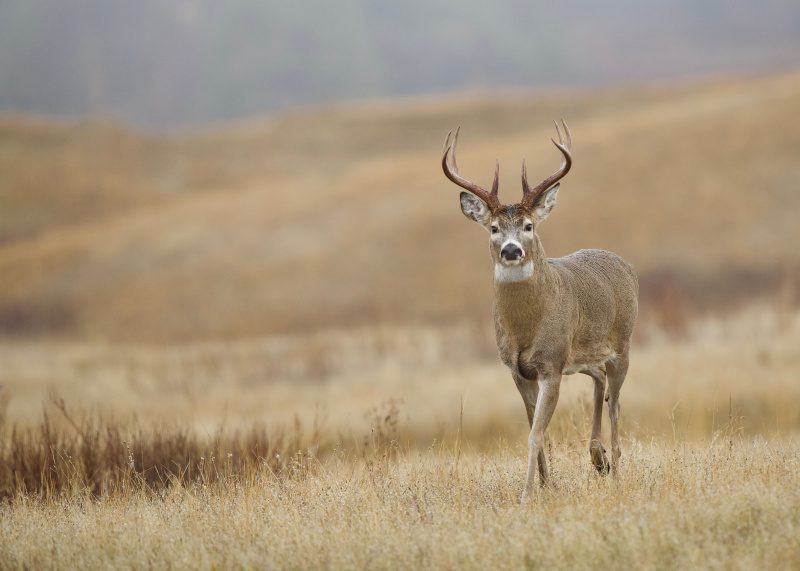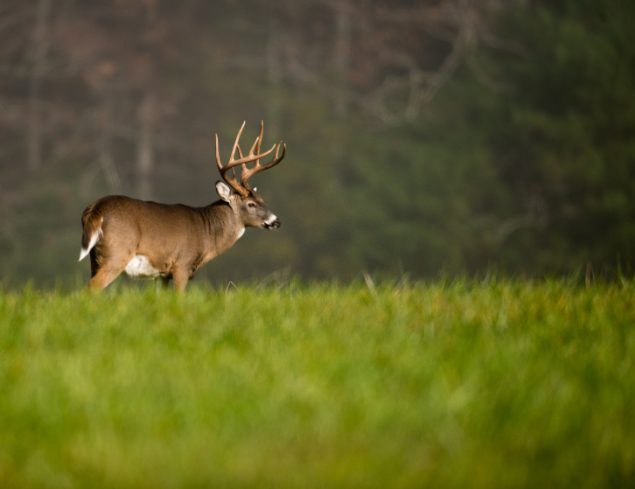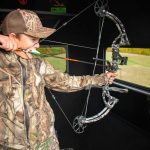Wildlife Conservation Through Hunting: A Sustainable Approach
Hunting has always been a part of human culture, and it continues to play an important role in many communities today. Across the U.S., and the Midwest in particular, hunting is not just a popular pastime but a lifestyle and a vital part of the economy. In fact, Alex Robinson, Editor-In-Chief at Outdoor Life refers to the Midwest (and the South) as the “heartbeat of hunting.”As one of the driving forces behind the North American Model of Wildlife Conservation, hunters help maintain balance in the ecosystem by controlling populations of certain species, preventing overgrazing, and destruction of habitats. Through the Pittman-Robertson Act, hunting activities raise money for conservation efforts and provide jobs in some rural communities. When done correctly, hunting can help to ensure that wildlife populations remain healthy and sustainable for future generations.
It’s strange, then, that in recent years hunting has become increasingly controversial, with some people and organizations arguing that it’s cruel and unnecessary. A lot of this sentiment is based on misinformation about what hunting is. Unfortunately, there’s also a small percentage of people that intentionally spread misinformation, simply because they don’t like hunting–even regulated hunting.
Regardless, it is a viable way of putting food on the table, raising money for game and non-game species, along with providing a unique opportunity to observe and appreciate wildlife in its natural setting.
Let’s take a look at how hunters play a critical role in conservation, and help to manage wildlife populations while protecting habitat.
Ethical Hunting Practices
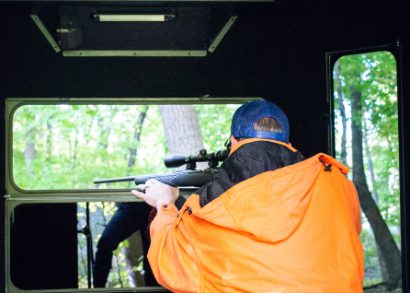
Ethical hunting involves a set of principles and practices that prioritize the well-being of both the wildlife being pursued and the overall ecosystem. Ethical practices also ensure that hunting remains sustainable and contributes positively to wildlife conservation efforts.
What is Ethical Hunting?
Ethical hunting goes beyond mere compliance with regulations and legal requirements. It encompasses a deep respect for the animals being hunted, their habitats, and the larger ecological system. Ethical hunters prioritize fairness, sportsmanship, and responsible decision-making throughout each hunt.
Respect for Game
Ethical hunting involves treating animals with respect and compassion. This includes using hunting techniques that minimize suffering, employing proper shot placement to ensure a quick and humane kill, and following up with appropriate field dressing and game handling practices. Ethical hunters also strive to minimize stress and disturbance to non-target wildlife during the hunt.
Compliance with Hunting Regulations
Understanding and abiding by the hunting regulations established by state wildlife management agencies is also a part of ethical hunting. These regulations, such as bag limits, hunting seasons, and specific harvesting restrictions, are put in place to protect wildlife populations and ensure sustainable hunting practices. Adhering to these rules is crucial for the long-term conservation of species and their habitats.
Importance of Fair Chase
Fair chase is a fundamental principle of ethical hunting and is strongly upheld by influential groups like The Boone and Crockett Club. It entails pursuing game animals in a manner that gives them a reasonable chance to escape or avoid detection, simulating a natural and balanced predator-prey relationship.
Ethical hunters refrain from using unfair advantages, such as high fences, excessive baiting or using illegal methods, which compromise the integrity of the hunt.
In fact, if a hunter happens to take a “trophy class” animal, it can’t be entered into the Boone and Crockett Club’s trophy record unless fair chase principles were followed. By embracing these ethical practices, hunters contribute to the preservation and sustainability of wildlife populations. They actively demonstrate their commitment to conservation, ensuring that the sport remains an environmentally responsible endeavor.
Ethical hunting practices are not only beneficial for wildlife conservation but also help shape a positive public perception of hunting. By prioritizing animal welfare, adhering to regulations, and upholding fair chase principles, hunters can contribute to a broader understanding of the taking of animals as a valuable tool for ecological balance and habitat preservation.
Benefits of Hunting for Conservation
Hunting, when conducted responsibly, offers significant benefits for wildlife conservation. Here are some of the key advantages that hunting brings to conservation efforts.
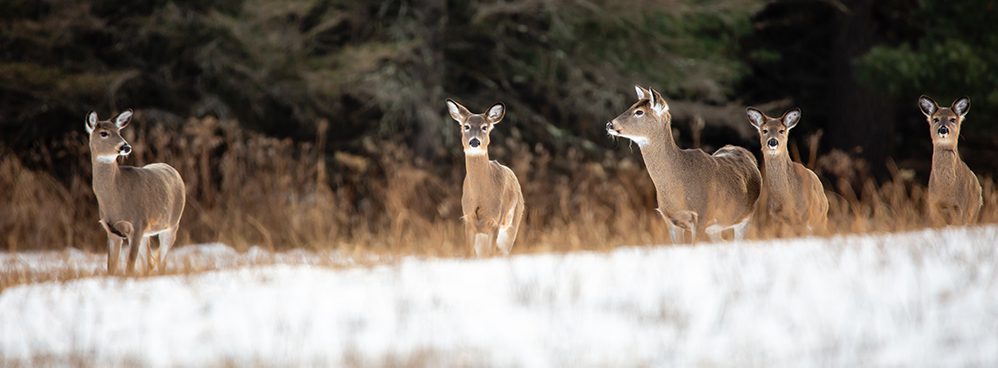
Population Management and Ecological Balance
Hunting plays a vital role in managing wildlife populations, particularly in areas where natural predators are scarce or absent. By selectively harvesting certain species, sex, or age classes hunters help prevent overpopulation, which can lead to habitat degradation, disease outbreaks, and competition for resources. Maintaining a balanced ecosystem through hunting ensures the long-term health and sustainability of wildlife populations.
Funding Through Hunting Licenses and Taxes
Hunters contribute significantly to conservation funding through the purchase of hunting licenses and permits. These fees directly support wildlife management agencies and conservation initiatives. Additionally, a portion of the revenue generated from the sale of archery equipment, firearms, ammunition, and other hunting equipment is dedicated to conservation efforts through the Pittman-Robertson Act. Excise taxes on hunting-related expenditures thus become a crucial source of funding for habitat restoration, species conservation, and research.
Preservation of Wildlife Habitat
Hunters are often strong advocates for habitat conservation and restoration. They understand the critical link between healthy habitats and thriving wildlife populations. Through their support and involvement in organizations such as The Boone and Crockett Club and Rocky Mountain Elk Foundation that are dedicated to land preservation, hunters contribute to the protection of vital habitats that benefit a wide range of species, not just those targeted for hunting. By conserving and enhancing habitats, hunters create havens for biodiversity and ensure the long-term survival of various plant and animal species.
Conservation Success Stories in the Midwest
Minnesota and the broader Midwest region have witnessed remarkable conservation success stories directly linked to hunting efforts. You wouldn’t believe it, but common species such as white-tailed deer, wild turkey, and waterfowl have experienced major population recoveries due to sustainable hunting practices, habitat management, and dedicated conservation programs. From a stunning nationwide low of 300,000 white-tail deer in 1890 to the reported 36 million we have in the U.S. now, Bass Pro Shops calls whitetail deer “history’s most successful conservation story.”
These success stories highlight the positive impact of hunting as a conservation tool, providing tangible evidence of how ethical and sustainable hunting can lead to thriving wildlife populations.
Specific Conservation Challenges and Initiatives in the Midwest
The Midwest has a rich hunting heritage deeply intertwined with conservation efforts. Without a doubt, hunting holds a significant cultural and social importance in America’s heartland. Generations of hunters have passed down traditions, skills, and knowledge, fostering a deep connection to the natural world. The hunting community in this region values the principles of ethical hunting and recognizes the critical role they play in preserving wildlife and their habitats.
But America’s hunting heartland faces unique conservation challenges that require focused efforts. These include the management of deer populations, diseases such as CWD and avian influenza, conservation of wetlands/ waterfowl habitats, and balancing the needs of predators and prey species. Issues associated with climate change such as storm intensity and increasing temperatures only serve to make things more difficult.
Conservation organizations, hunting associations, and state wildlife agencies in the region actively collaborate to address these challenges through research, habitat restoration, and public outreach programs.
The Role of Hunters in Conservation
Hunters play a vital and multifaceted role in wildlife conservation efforts. Beyond their pursuit of game, they actively contribute to the preservation and enhancement of natural habitats. Let’s take a look at the various ways hunters actively engage in conservation and make a positive impact on the environment.
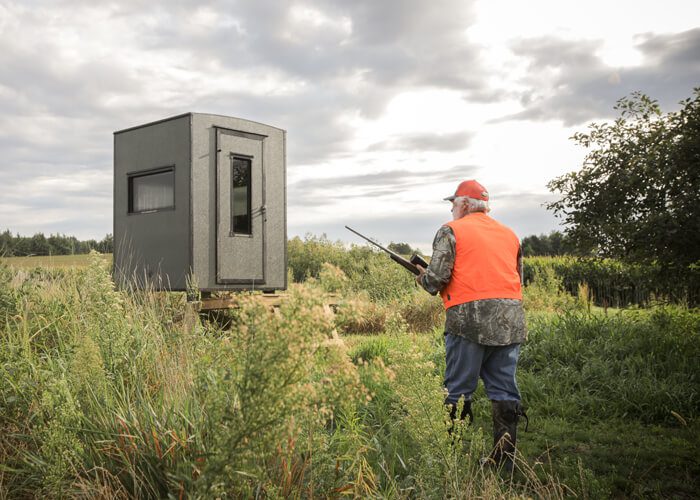
Advocacy and Support for Conservation Organizations
Hunters often serve as passionate advocates for conservation organizations. They actively participate in these groups, contributing their time, resources, and expertise to further conservation initiatives. Through their involvement, hunters help shape policies, promote sustainable hunting practices, and ensure the preservation of wildlife habitats.
Volunteer Efforts and Habitat Restoration
Many hunters understand the importance of giving back to the environment. They engage in volunteer activities, such as habitat restoration projects, tree planting, and wildlife monitoring. By actively participating in these efforts, hunters contribute to the improvement and preservation of vital habitats, creating havens for diverse species and promoting overall ecological health.
Education and Awareness Programs for Future Generations
Recognizing the importance of passing on knowledge and values to future generations, hunters actively engage in educational programs and mentorship opportunities, teaching ethical hunting practices, wildlife conservation principles, and the importance of preserving natural habitats.
R3 (Recruitment, Retention, Reactivation) is probably the most popular large-scale program going. R3 is a nation-wide effort that seeks to bring new hunters into the fold, keeps current hunters, and “reactivate” hunters that have quit. By instilling a sense of stewardship and respect for nature, hunters contribute to the development of environmentally conscious individuals who will carry the torch of conservation forward.
Hunters’ active involvement in conservation goes hand in hand with their commitment to ethical hunting practices. Through their actions, they demonstrate that hunting can coexist with the protection and enhancement of wildlife and their habitats. By advocating for conservation organizations, participating in volunteer efforts, and educating others, hunters play a crucial role in ensuring a sustainable future for both the sport and the natural world.
Addressing Criticisms and Concerns
Hunting often faces criticisms and misconceptions that can overshadow its potential as a conservation tool.
One common misconception is that hunting directly threatens wildlife populations. While that was certainly true during the market hunting frenzy of the 19th century, it is not what current science shows under legal, regulated hunting rules. When conducted ethically and responsibly, hunting positively contributes to population management and ecological balance.
Another misconception is that hunting is solely driven by trophy hunting and disregard for animal welfare. In reality, ethical hunters prioritize fair chase, respect for animal welfare, and sustainable practices. Trophy hunting, when conducted responsibly, can contribute to conservation efforts by providing incentives for habitat preservation and generating funds for conservation initiatives.
Transparency and Ethical Responsibility
Transparency and ethical responsibility are essential in hunting. It is crucial for hunters to abide by regulations, practice fair chase, and ensure humane harvesting techniques. Responsible hunters also engage in open and respectful dialogue with non-hunters, sharing their perspectives and knowledge to foster understanding and address concerns.
Building a Positive Image for Hunting
To build a positive image for hunting, hunters should actively engage in conservation efforts and communicate their commitment to sustainable practices. This includes participating in habitat restoration projects, volunteering for conservation organizations, being mindful of how and what you show on social media, and promoting education and awareness programs. By showcasing the positive impact of hunting on wildlife conservation, hunters can help dispel misconceptions and foster a greater appreciation for the sport’s role in preserving the natural heritage.
By addressing criticisms and concerns some people have developed surrounding hunting, we can encourage constructive conversations and promote a more comprehensive understanding of the positive contributions hunters make to wildlife conservation efforts.
Promoting a Sustainable Future
Promoting a sustainable future for hunting and conservation in Minnesota and the larger Midwest requires collective action and a commitment to responsible practices. Below are some practical steps for supporting sustainable hunting and conservation initiatives.
Collaboration with Non-Hunting Stakeholders
Building bridges with non-hunting stakeholders, such as policymakers and the general non-hunting public (read voting public), is essential for promoting sustainable hunting practices. By fostering dialogue, sharing knowledge, and finding common ground, we can work towards a shared understanding of the importance of hunting in conservation and the need for responsible stewardship of our natural resources.
Encouraging Responsible Hunting Practices
Encouraging responsible hunting practices is paramount to ensuring the sustainability of the sport. Hunters should prioritize ethical hunting principles, including fair chase, respect for animal welfare, and compliance with hunting regulations. They can serve as ambassadors for responsible hunting by promoting these practices within their communities and educating others about the positive impact hunting can have on wildlife conservation.
Supporting Conservation Initiatives
Supporting conservation initiatives through financial contributions, volunteering, or advocating for conservation-friendly policies is crucial for a sustainable future. By supporting viable organizations like Ducks Unlimited, NWTF, RMEF, The Boone and Crockett Club, or The Wildlife Society that are focused on wildlife research and conservation education, hunters and non-hunters alike can actively contribute to the protection of wildlife and their habitats.
To conclude, promoting a sustainable future for hunting and other outdoor activities in the Midwest (and nationwide for that matter) has a lot of moving parts. It requires a collaborative and proactive approach. By non-hunters engaging the hunting community, hunters collaborating with non-hunting stakeholders, encouraging responsible practices, and supporting conservation initiatives, we can ensure the preservation of our natural heritage and create a legacy for future generations.

